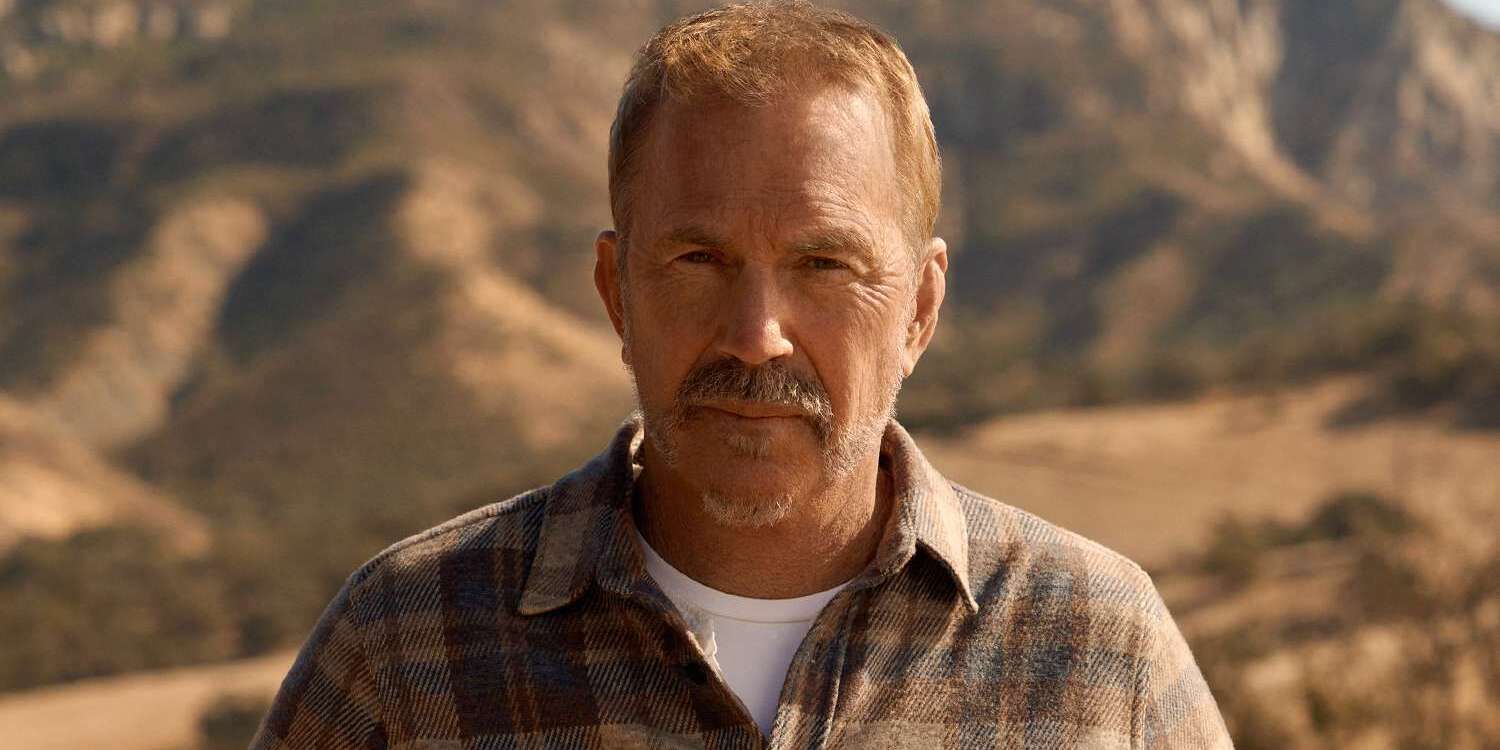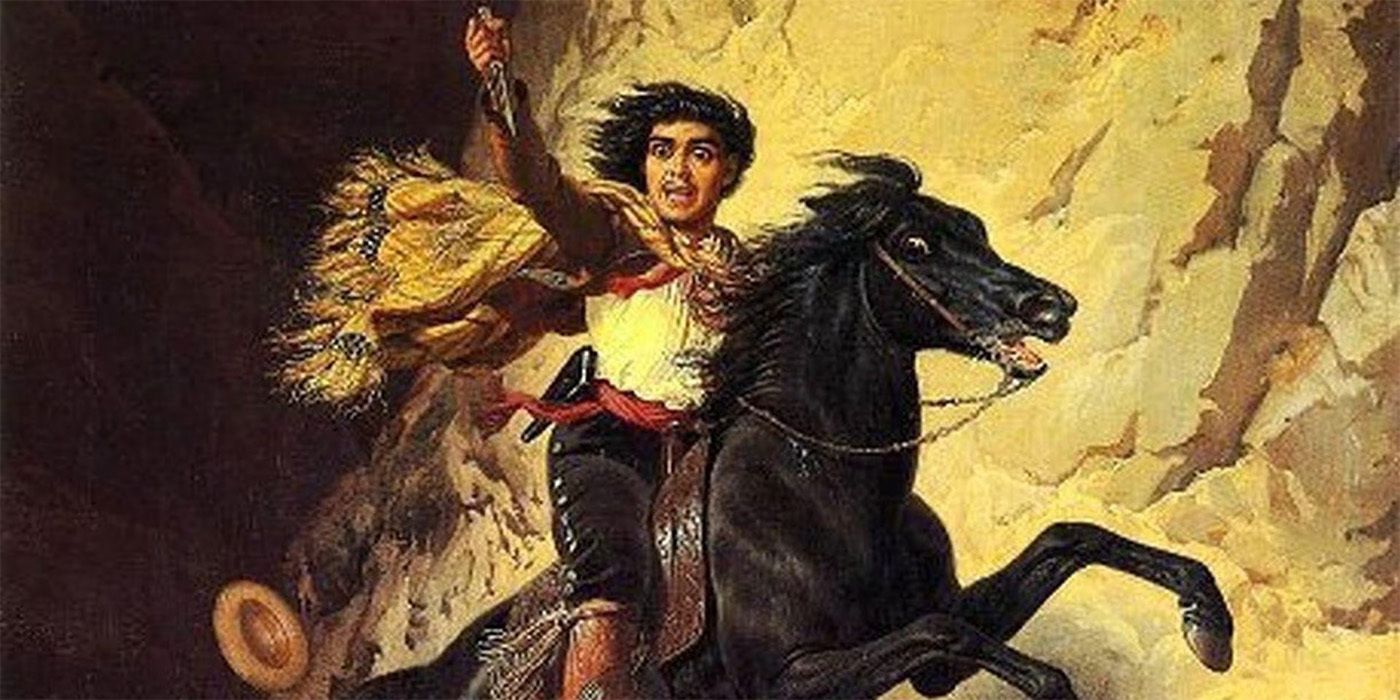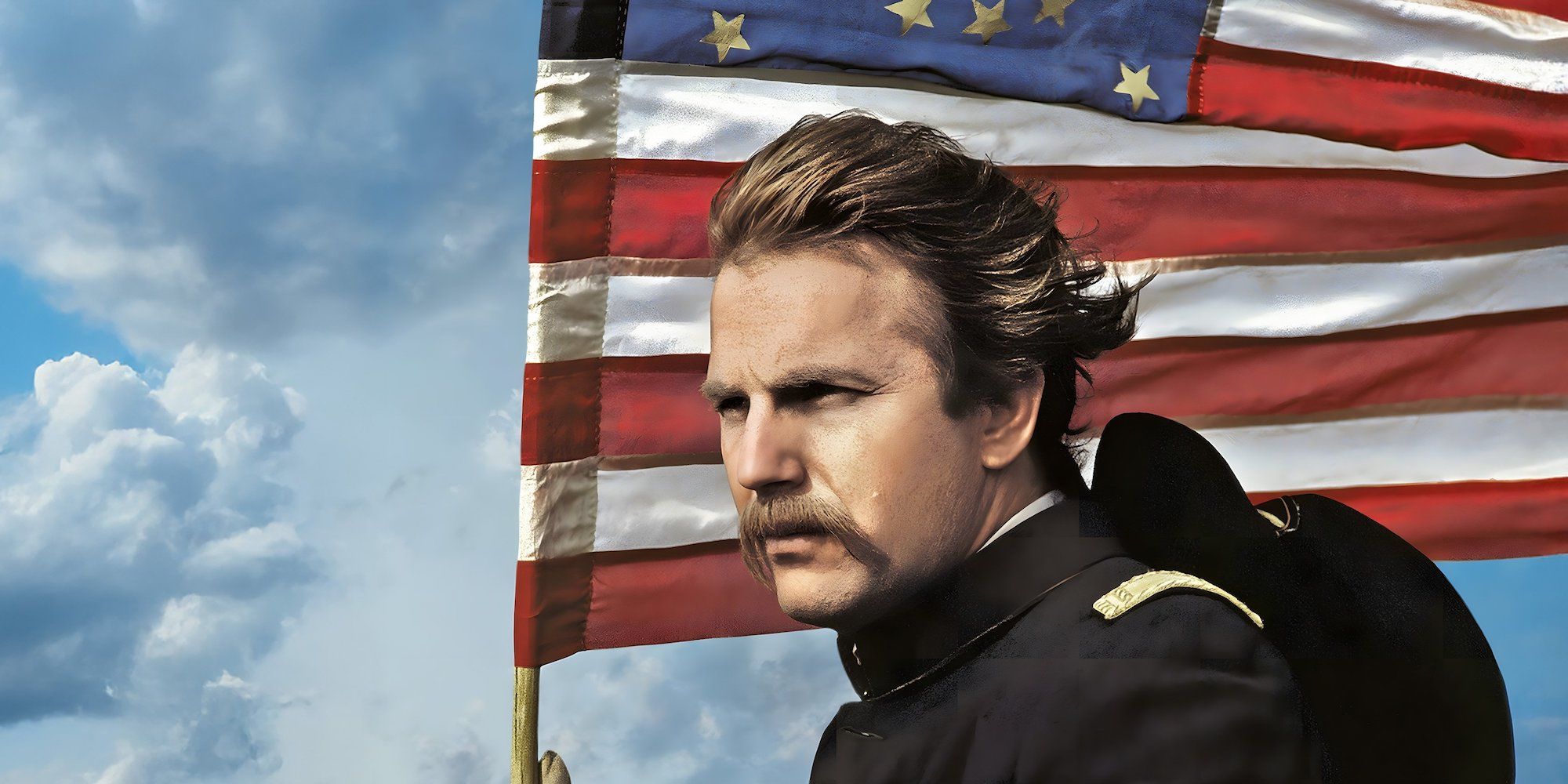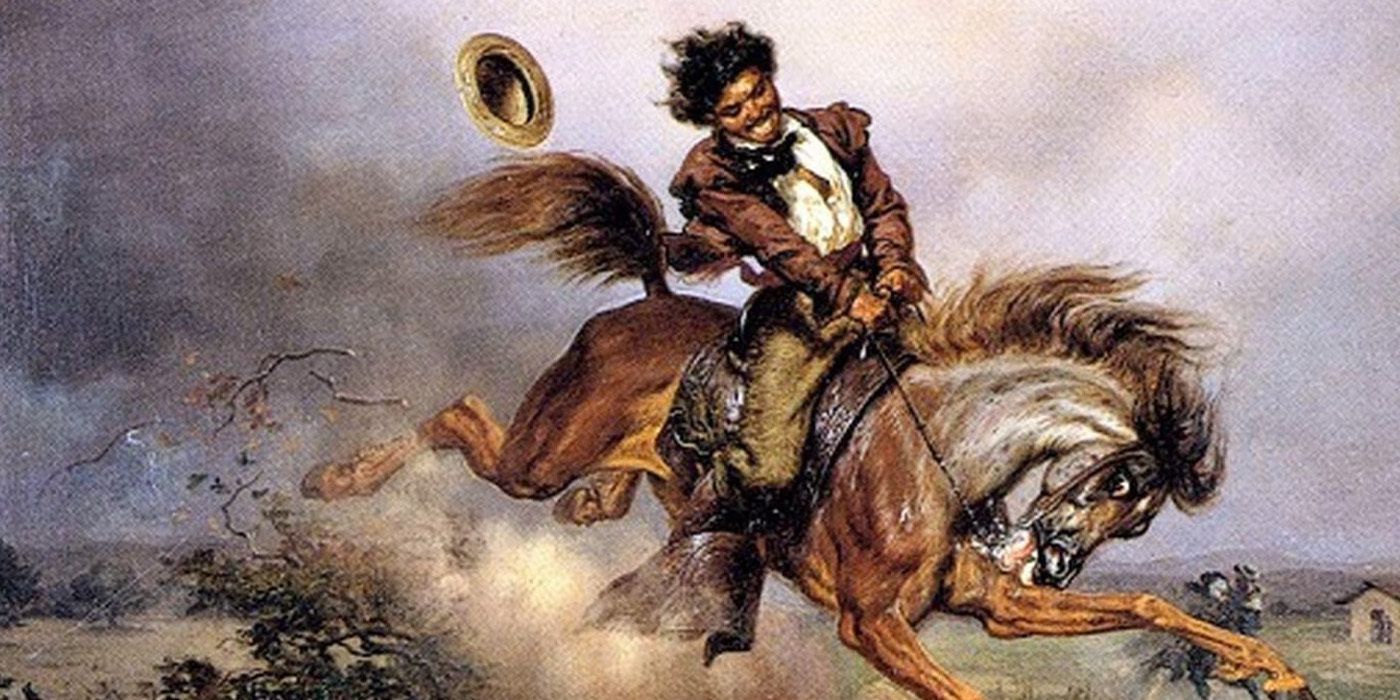After years of propping up old myths about the American West in his beloved Western genre, Kevin Costner is embracing the truth. Although the History Channel’s new documentary series, Kevin Costner’s The West, is branded by the allure of its producer and narrator, it vows to strip away the Hollywood legend-making of the formation of the United States in the 18th and 19th centuries, chronicling various battles and events revolving around the complicated relationship between Indigenous people and white settlers and the U.S. army.
In essence, the series deconstructs the myths of Hollywood Westerns and props up the achievements and autonomy of the Native American tribes marginalized by Western media. Episode 5 of The West, “The Robin Hood of El Dorado,” shares the namesake of a classic 1936 Western, and dives into the realities of a Mexican folk hero worthy of reevaluation.
Kevin Costner Portrays a Truthful Account of History in ‘The West’
In the opening moments of Episode 1 of The West, Kevin Costner, standing against the backdrop of a painterly Western vista, states, “Although the United States was founded in the East, the country we know today was forged in the West.” As we know, Costner is no stranger to the West, as this genre has surpassed sports movies as the genre he’s most synonymous with, finding triumphant success with Dances With Wolves and Yellowstone and overwhelming failure with the first chapter of Horizon: An American Saga, which appears to be in eternal limbo in the wake of unsettling allegations about its production.
If there’s any genre or era of American history that deserves the History Channel or any nonfiction network’s treatment, it is the Western. The genre has been whistled past the unfortunate truths of history for the last 100 years. It’s no surprise that its own subgenre, the Revisionist Western, is so lauded by critics and audiences, as films like The Man Who Shot Liberty Valance, The Wild Bunch, and Unforgiven are refreshing insights into the pathos, bloodshed, and horror of American expansion and cowboy justice.
‘Kevin Costner’s The West’ Examines the Gold Rush and the Legend of Joaquin Murrieta
As Costner explains in the intro to Episode 5, “The Robin Hood of El Dorado,” Joaquin Murrieta started with humble dreams of moving out to the American West for monetary prosperity. Hailing from Mexico, Murrieta sought fortune during the California Gold Rush, a period ripe with Western legend-making, as it speaks to the endless land of opportunities the New Frontier promised its migrants. As the episode outlines, however, the dreams carried by those moving out West were nothing in comparison to the quest for power and control by the government under President James K. Polk. The media-coined phrase “Manifest Destiny” represents America’s superiority complex against those who are already occupying this land — it was only inevitable, by the power vested in a higher power, that America would strike gold and become trade partners with Asia.
Related
10 Essential Kevin Costner Movies, Ranked
The Oscar winner has carried numerous all-time American classics.
The area, previously owned by Mexico, was naturally inhabited by a robust population of Mexicans hoping to cash in on the Gold Rush. As historically is the case in the West, they were viewed as foreigners by America, despite occupying the land first. Western films and shows tend to prop up this notion that disputes and conflicts arise from people standing for righteous causes. In reality, capitalism is the root of all our motivations in the past and present. With such a vibrant economic boom, mining towns turned into the Wild West, hosting countless violent gang battles.
Joaquin Murrieta Is Similar to Iconic Clint Eastwood Characters
The episode’s subject, Joaquin Murrieta, known as “The Robin Hood of El Dorado,” is a figure of endless legend-making. He is the closest historical approximation to one of Clint Eastwood‘s ghost-like outlaws portrayed in High Plains Drifter and The Outlaw Josey Wales. The documentary, which recounts an alleged account of his assassination of the town sheriff, discusses Murrieta as a ghostly figure, and the sparse historical evidence regarding his claims to fame adheres to his mythical aura.
After being pushed out of his territory and fortune, legend states that Murrieta became a Robin Hood-esque figure, pulling grand larcenies and engaging in heroic battles. From a broad scope, the History Channel series argues that someone like Murrieta would have to take on life as a vigilante to maintain autonomy and accomplish the American Dream. Despite everything The West chronicles, there’s still a possibility that Murrieta never even existed.
Amid his crime streak, California Governor John Bigler authorized the California Rangers, a squad assembled to hunt down Murrieta and any known associates. Murrieta could not fend off Rangers and bounty hunters any longer, as he was allegedly killed by venerated officer, Harry Love. Once again, Love’s desire to take down Murrieta was less about pride and justice and more about earning a paycheck, as, during this time, gold began to dry up.
How Did Joaquin Murrieta Become a Source of Western Legend?
“When the legend becomes fact, print the legend.” This immortal line from John Ford‘s revisionist takedown of Western mythos, The Man Who Shot Liberty Valance, applies to Joaquin Murrieta to a tee. Untangling fact from legend is nearly impossible, and what the public knows about the figure stems from literature and cinema. Published in 1854, The Life and Adventures of Joaquin Murieta was taken as a historically credible text upon release.
Since the book’s publication, various films have integrated Murrieta’s stories onto the screen, with the most notable example being the film The Robin Hood of El Dorado, directed by William A. Wellman and starring Warner Baxter as Murrieta. Despite exploiting all the fantastical stories propped up by dimestore novels and being traditional in its structure, the film predates the revisionist Western boom by imbuing Murietta’s picaresque journey with a cloud of dread and angst. The figure, commonly referred to as just “Joaquin,” is believed to be a heavy inspiration for The Mask of Zorro, another story that’s been told for generations.
Newspapers sensationalized Joaquin Murrieta’s trials and tribulations, tying him to roughly 20 murders in the area. This coverage paved the way for the antagonist portrait of the Mexican bandit, a trope prevalent across all Western movies. There’s no denying the fact that Murrieta would certainly be held in higher regard if he were a traditional white American outlaw who committed noble crimes for the sake of making a living.
Kevin Costner’s The West indirectly acts as an attempt to correct the eponymous actor’s romantic portrait of the West, as seen with the white savior tendencies of Dances With Wolves and the maudlin soap opera themes of Yellowstone. Per Costner’s introduction, the America that we know today was formed in the West, but our media has been derelict in their duties by omitting the layers of Indigenous people and Mexican settlers. Sure, Joaquin Murrieta might be a product of sheer legend-making, but so is our collective image of the West.





